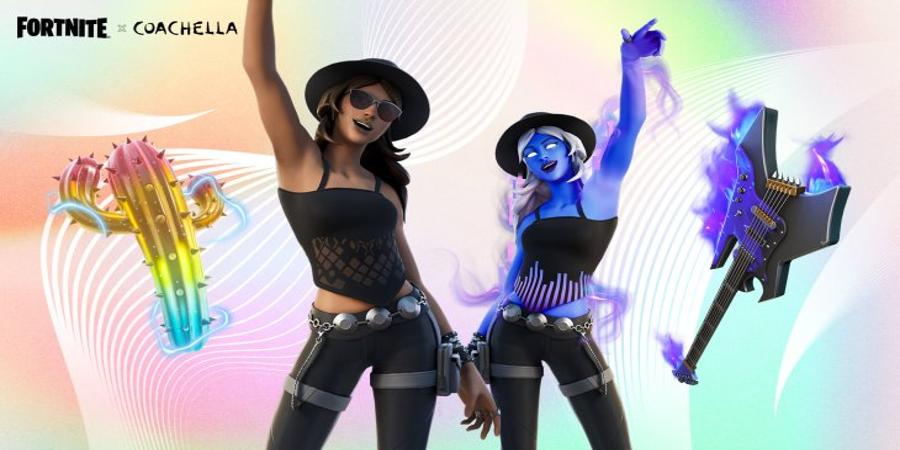A prominent choreographer’s lawsuit against Fortnite maker Epic Games is back on after the Ninth Circuit U.S. Court of Appeals overturned a lower court’s decision to throw the case out last year.
Kyle Hanagami sued Epic last year, accusing the company of stealing his choreography for one of Fortnite’s in-game emote. Hanagami has crafted hit dance routines for Jennifer Lopez, Britney Spears, Justin Bieber and an array of K-Pop stars, among other major names in music.
The emote, called “It’s Complicated,” showed up in Fortnite Chapter 2 Season 3 in August 2020. Players could purchase the notably complex series of dance moves for their own digital avatars to use in Fortnite matches (players often deploy emotes to celebrate wins or troll opponents).
In his lawsuit, Hanagami accused Epic of lifting the sequence of moves from his own original YouTube video, set to the song “How Long” by Charlie Puth. That video had 37 million views as of November 2023.
Epic makes money from the virtual items and dance moves it sells in the Fortnite store, which range in price from a few dollars on up depending on the item’s rarity. All of these transactions happen using V-Bucks, Fortnite’s in-game currency. In 2020, Epic charged 500 V-Bucks, valued at $5 USD, for the dance emote at the heart of the case. TechCrunch has reached out to Epic for comment on the case.
“You know we’re buying it — oh my god. Man, the movements, the beat, and everything is amazing with that emote,” one Fortnite YouTuber exclaimed during a review of the in-game store’s stock the week the dance was introduced.
When a district court dismissed the case last year, it argued that the individual poses within a stretch of choreography are not protected by copyright. According to a court filing, the lower court “determined that the overall ‘steps’ Epic allegedly copied—which the court described as ‘a two second combination of eight bodily movements, set to four beats of music’—were not protectable under the Copyright Act because they were only a ‘small component’ of Hanagami’s work.”
The district court found that the segment of the choreography in question was closer to “uncopyrightable dance” than choreography eligible for copyright protections. While the entire five-minute sequence would be protected, it ruled that the portion of the moves in question was not. The Ninth Circuit disagreed, writing that the lower court “erred in dismissing Hanagami’s claim because the choreography was “short” and a “small component” of Hanagami’s overall work.”
Hanagami applied to copyright the choreography from the video in February 2021 and the application was granted that same month.
“Hanagami argues the district court erred in its application of the extrinsic test when it determined that the Registered Choreography and the ‘It’s Complicated’ emote were not substantially similar,” the appeals court wrote. “We agree with Hanagami. The district court’s approach of reducing choreography to ‘poses’ is fundamentally at odds with the way we analyze copyright claims for other art forms, like musical compositions. We reverse and remand to the district court on this basis.”
Epic rotates the items available through Fortnite’s store daily, and the “It’s Complicated” emote was available in the store every few months from August 2020 to August 2021.
The appeals court cited Hanagami’s argument that similarities between his choreography and the Fortnite emote were not obvious when breaking the dance moves into “static poses,” as the lower court did during its decision making.
“He alleged that Epic copied ‘without limitation, the footwork, movement of the limbs, movement of the hands and fingers, and head and shoulder movement covered by the Registered Choreography,’” the appeals court wrote. “The district court erred by ignoring these elements in its application of the substantial similarity test.”
While the appeals court was sympathetic to Hanagami, the case is not yet settled and will head back to court, where it could ultimately be decided by a jury.
Hanagami isn’t the first to accuse Epic of stealing creative works for its lucrative in-game Fortnite store. In 2018, actor Alfonso Ribeiro, who played Carlton on the TV hit “Fresh Prince of Bel Air” and the family of Russell Horning, known online as “Backpack Kid,” filed their own lawsuits over the game’s digital dances. So did rapper 2 Milly, who alleged that Epic stole his viral dance move the Milly Rock, selling it for V-Bucks as “Swipe it.”
All of those suits, which were filed as plaintiffs applied to copyright their dances, were dropped in 2019 following a Supreme Court ruling stating that copyright holders can’t sue until the U.S. Copyright Office has taken action on an application for copyright.
Source @TechCrunch



